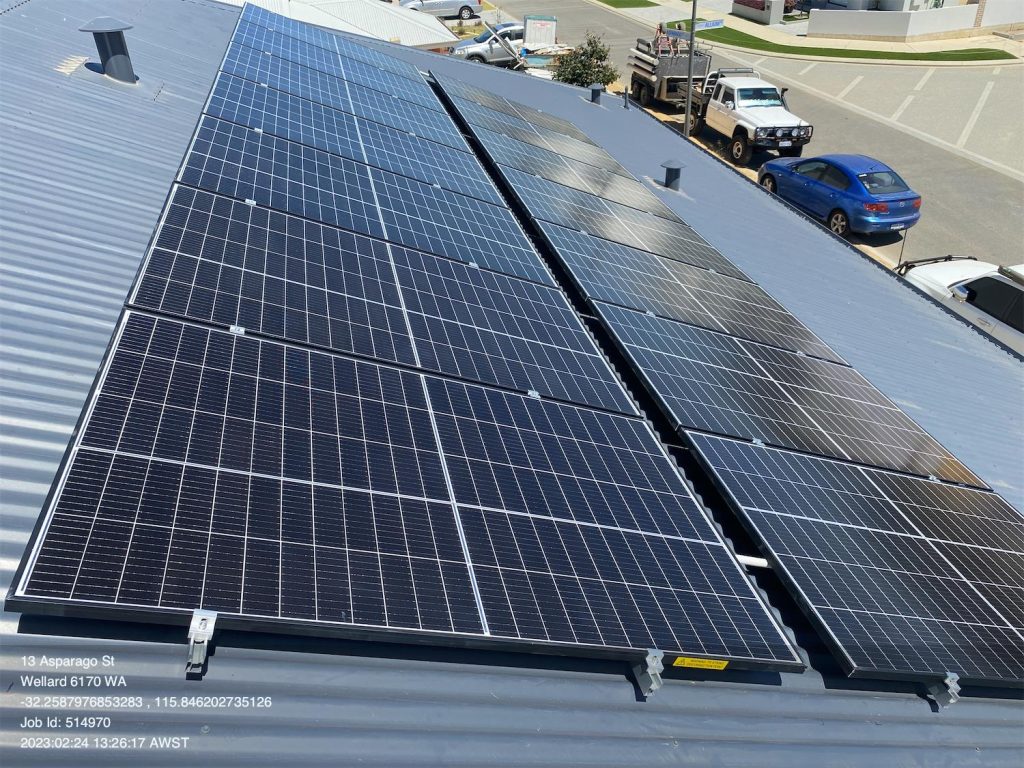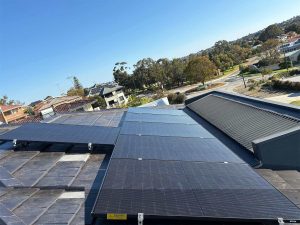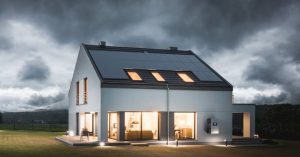N Type Solar Panels
N-Type solar panels are the next evolution in solar cell technology. Unlike the more commonly used P-Type solar cells, N-Type panels use N-Type silicon as the base material. This material is purer and less prone to impurities, resulting in an improved flow of electrons. In simple terms, N-Type panels are more efficient at converting sunlight into electricity.
How N Type Solar Panel is Made?
The magic of N-type panels lies in their intricate production process. They start with a thin silicon sheet, somewhat similar to P-type solar panels. However, N-type panels go through one step extra. Their silicon sheet is treated with phosphorous gas to create the N-Type layer, and boron is introduced to create the P-type layer. This dual-layer design multiplies the cell’s performance. The high-cost factor of N-type solar panels is mitigated by their ultimate performance and long lifespan. Over the long run, N-Type panels tend to be a cost-effective choice, offering a better return on investment.
Why Choose N-Type Solar Panels?
Did you know that the first solar cell invented by Bell Labs in 1954 was N type? N-type solar panels have been launched recently for commercial use and are more efficient and durable than traditional solar panels. They are made with a different type of silicon than traditional solar panels, which allows them to absorb more sunlight and generate more electricity.
N-type solar panels are also less susceptible to light-induced degradation (LID), which is a phenomenon that causes solar panels to lose efficiency over time. This makes N-type solar panels a more long-term investment than traditional solar panels. Hence, they are one of the best solar panels available in Australia.
N-Type Solar Panels: Yay or Nay?
Higher efficiency: N-type solar panels can generate up to 20% more electricity than traditional solar panels.
Better temperature tolerance: N-type solar panels are less affected by high temperatures than traditional solar panels.
Longer lifespan: N-type solar panels are expected to have a lifespan of up to 30 years, which is longer than the lifespan of traditional solar panels.
Less susceptible to LID: N-type solar panels are less susceptible to light-induced degradation, which means they will retain their efficiency for longer.
Defects: N-type panels are less prone to metallic impurities and other defects.
Power: N-type panels come with 410W to 440W instead of the standard 370W.
So, as long as you want quality, N-Type solar panel is a big yay!
N-Type Solar Panels VS P-Type Solar Panels
The devil is in the details, they say and this applies here as well. Essentially, both of these cells are made of silicon, but the difference between Boron and phosphorus does the trick. Let’s dig a little deeper in the difference between N type solar panel and P-type solar panels.
1. Manufacturing
N-Type (N for Negative): N-Type solar panels use N-Type silicon as the base material. N-type silicon is dipped with elements like phosphorus, introducing extra electrons into the structure. These extra electrons create a surplus of negative charge (electrons) in the material.
P-Type (P for Positive): P-Type solar panels, on the other hand, use P-Type silicon as the base material. P-type silicon is introduced with elements like boron, creating “holes” in the silicon structure. These holes serve as positive charge carriers. All the more, boron reacting with oxygen reduces its life by 10% over time.
2. Efficiency:
N-Type: N-Type solar panels tend to be more efficient than P-Type panels with 25.7% efficiency. The increased electron mobility in N-Type silicon results in better electron flow and more current.
P-Type: P-Type solar panels are generally less efficient with 23.6% than N-Type panels due to the lower electron flow.
3. Temperature Sensitivity:
N-Type: N-Type panels can withstand temperature fluctuations. Panel’s efficiency remains relatively stable even in high-temperature conditions, making them suitable for hot climates, especially deserts where days are hot and nights are cold. Wecan say they can be used universally.
P-Type: P-Type panels are vulnerable to temperature fluctuations. Their efficiency can decrease in extremely hot weather making their use extremely selective.
4. Durability
N-Type: These panels are more durable and have a longer lifespan. They are less susceptible to degradation over time.
P-Type: These panels may degrade fast, which can impact their long-term performance.
5. Cost:
N-Type: They are typically more expensive upfront compared to P-Type panels due to the advanced materials and manufacturing processes.
P-Type: They are generally more affordable upfront.
6. Applications:
N-Type: These are well-suited for residential, commercial, and utility-scale installations where efficiency and long-term reliability are of the essence.
P-Type: These most widely-used solar panels in Australia are still widely used and are a practical choice for many applications. They may be more suitable for budget-conscious consumers and projects where the upfront cost is a significant factor.
N Type Solar Panel Manufacturers
The adoption of N-Type solar panels is gaining momentum, and several photovoltaic (PV) manufacturers are leading the way. While it’s difficult to predict the future, some key players are pioneering the N-Type solar panel production and are likely to continue driving industry adoption.
LONGi Green Energy Technology: LONGi is a major player in the solar industry and has heavily invested in N-Type technology. They are known for their high-efficiency N-Type solar cells.
JinkoSolar: They have demonstrated impressive efficiency levels and are pushing for increased N-Type adoption.
Trina Solar: Trina Solar is known for producing high-efficiency N-Type solar cells. They are working on expanding their N-Type product portfolio to offer it among other PV solar panels in Australia.
JA Solar: They have commercialized N-Type PERC (Passivated Emitter and Rear Cell) technology, which enhances the efficiency of solar panels.
Panasonic: Panasonic has been exploring N-Type technology and has released N-Type HIT (Heterojunction with Intrinsic Thin-layer) solar panels known for their high efficiency and long-term reliability. It has also taken over Sanyo.
SunPower: They have developed N-Type solar cells and are incorporating them into their product lineup.
What is P Type Solar Panel?
P type solar panels, also known as P type solar cells are a common type of PV technology that can be found at most of the places. When sunlight falls on its surface, electricity is generated. However, it appears that their time is up as N type solar panels are projected to grab 28% of the market share by 2028 according to ITRPV.
Related articles:-








